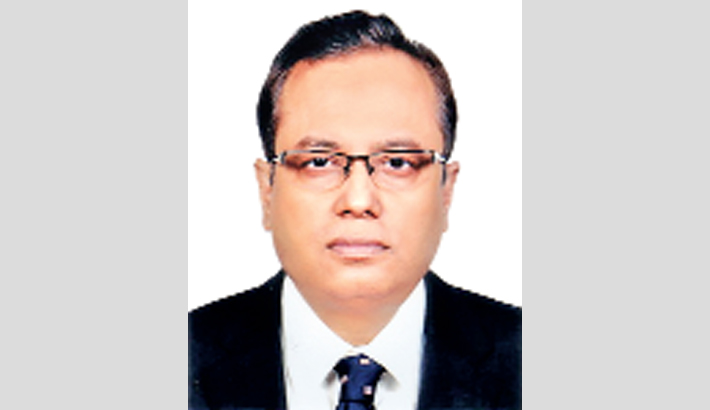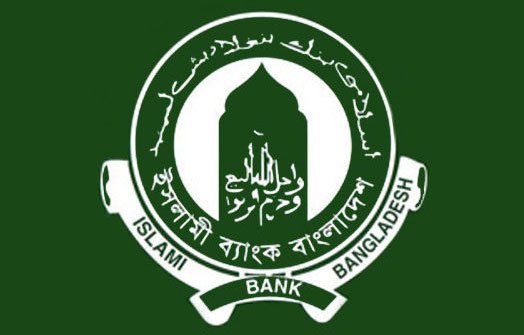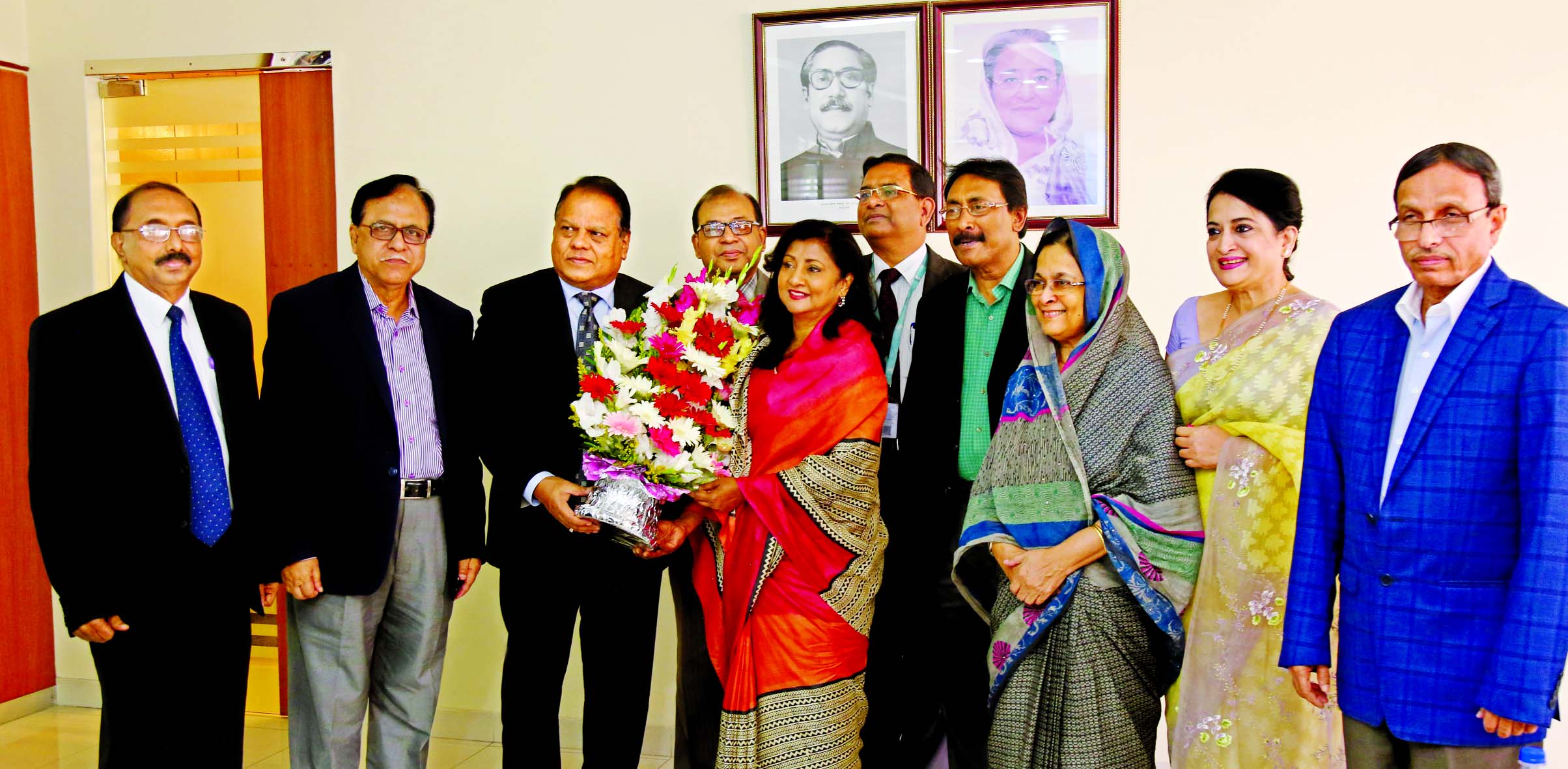The governing body of Islami Bank Bangladesh Limited (IBBL), which is just in its fifth month, is gripped by suspicion and disbelieve, intensifying an internal conflict.
Reconstituted on January 5 this year, the governing body now appears to be on the verge of being dissolved, reports Bangla Tribune.
The intra-bank row became even clearer after IBBL Vice-Chairman Prof Syed Ahsanul Alam, who is well known as a government-backed figure, decided his resignation on Thursday.
“After taking charge, we tried to make the bank acceptable to all. But, it feels that the governing body is no longer controllable,” he said.
“In a bid to make the bank questionable, 2.9 million copies of calender have been published without mentioning its theme– Shariah-based bank. Many other things are also happening without the consent of the governing body. These are the reasons why I have taken the decision (to resign,)” he continued.
The IBBL Vice-Chairman in a Fabebook status, posted the same day, mentioned that a handful of high officials (less than two dozens), who have sedition cases and arrest warrants against them, are working in the bank’s top-level management.

“They want to split the governing body first, which they fully disobeyed afterwards. They refuse to carry out orders issued by different boards that do not support their agenda. They facilitate the employees, who are active in anti-government activities, with better posting, helping them do politics against the state. They also do not comply with the intelligence reports suggesting not to transfer such officials and employees outside Dhaka,” he wrote.
When contacted, IBBL Director Maj Gen (retd) Engr Abdul Matin said: “I also heard that Syed Ahsanul Alam is mulling of resigning. We took charge of the bank at a certain stage. He must have been mentally hurt somehow. But, he can not resign without the permission from the higher authorities. We have a governing body meeting on Sunday, where the matter will be discussed.”
“Those, who are in the governing body, want to contribute to the bank. We do not want to take anything from here (bank),” he said.
Though the bank started seeing changes in its top management from early this year, an initiative was taken to establish control over it back in 2010. As part of the move, the authorities concerned wrote to the Saudi Arabian government through Bangladeshi embassy in Riyadh for its consent over removing pro-Jamaat-e Islami directors and employees from the bank. Afterwards, some pro-government local investors started buying shares of the bank from the former entrepreneurs with foreign stakeholders and organisational investors selling their shares.
In the latest reshuffle, the governing body was reconstituted with former secretary, Arastu Khan, as its chairman who replaced Engr Mostafa Anwar. The then Managing Director Mohammad Abdul Mannan was forced to stand down, and then replaced by Union Bank MD Md Abdul Hamid Mia.
The directors loyal to Jamaat were removed from the governing body before the major changes.
Established in 1983, IBBL was well-dominated by Jamaat from the very beginning.
The translated version of the rest part of the IBBL vice-chairman’s Facebook is as below.
Friends and millions of customers of the bank, Assalamu Alaikum (peace be upon you). I completed one year as an independent director, the Election Commission chairman and vice-chairman (of the bank) on May 6. IBBL is the largest bank of Bangladesh, which impacts the country’s 32% economy. Several governors of Bangladesh Bank had earlier said in different times that the economy of development depends on IBBL while the balance of state power on the politics of development.
One million customers have been given the deposits of more than 12 million investors. We started monitoring who got the money and if the money was being used in militancy or anti-government politics.
Bangabandhu’s dream was a “Sonar Bangla.” His daughter, who is the incumbent prime minister, also has the dream of a “Sonar Bangla.” Keeping the vision in mind, me and the new governing body started our loan distribution programme for 500,000 extremely poor Hindus, Buddhists, Christians and Muslims. We also instructed the sanction of loans to 500,000 small and middle entrepreneurs, mostly young men and women. We did it all to get support of the underprivileged people of Bangladesh to help implement the primer’s Vision 2021 by eradicating poverty. When we got busy doing all these, an unrest surfaced within the governing body.
As 12 million investors deposited their belongings, trust and sentiment to us, me and the new governing body began working on the economy of development. Right then a conspiracy was launched against us. Some high officials of the bank and several corrupt government officers are linked to the seditious act. The conspiracy is so grave that it requires immediate intensified intelligence activities for the sake of the state. I am pointing out some sensitive issues here-
Firstly, when the governing body was formed engaging the freedom fighters and the pro-Liberation War forces, a propaganda was run across the country that the government and the governing body is an anti-Islamic one. In order to establish the propaganda as truth, a vested quarter deliberately removed “Shariah-based bank” theme from the bank’s calender to put the governing body in trouble. The conspiracy was meant for affecting the vote bank of the pro-Liberation War forces. Despite me and the governing body obstructing, over 700,000 calenders were circulated in the market; that too without our knowledge.
Secondly, 99% of 13,500 IBBL officials are ideal and dedicated bankers. Many of them dedicated own life for Islamic banking. They are helping the new governing body to help make the bank an uniform one. But, a handful (less than 2 dozens) high officials, who are sued for sedition and have arrest warrants issued against them, occupied the higher managerial posts of IBBL. They only perform their duty that covers their agenda, refusing to work on the instructions made in different committees. They help the employees, who are engaged in anti-government activities, to continue politics against the state, by awarding them better posting. Even they do not act on the instructions that the intelligence agencies make asking not to transfer the anti-state IBBL employees outside Dhaka.
Thirdly, the instruction to take the governing body members to the Martyred Intellectuals Graveyard in Mirpur on Martyred Intellectuals Day was violated. The same way, the Independence Day was not observed amid proper respect. Rather, secret meetings started in IBBL branches and collection of Yanat (funds) also begin and that were disbursed among the cadres.
Fourthly, Tk70 crore of profit made this year was deposited in the controversial zakat fund of the bank. The people with the pro-Liberation War spirit questioned me as to why zakat is collected from the Hindu, Buddhist and Christian depositors’ net profit . Muslim depositors say they would give zakat upon their will. “Then, why is my zakat is being deposited in a controversial fund?” they [Muslims] ask me.
In the circumstances, the masses demanded to the highest authorities of the state that the bank be not used as a weapon to grab the state power by the anti-Liberatiobn War forces and the latter can not occupy the bank management yet again.
Is it possible for me to fulfill the such an expectation of billions of the countrymen?
Respected readers, IBBL is a much-talked-about and also a criticised bank. Amid innumerous hopes and dreams, I tried my best to help the bank get rid of the stigma it is bearing. My efforts were to protect the bank from being used in seditious acts. I, risking my life, worked fearlessly. I am leaving it on the history to judge if I succeeded or failed.
Despite my continued efforts, the anti-state forces are rehabilitating and the people loyal to the killers of Banbandhu are returning to leadership. The blueprint to use IBBL in seditious activities in the next year is being drafted.
I have pressure from the higher authorities to step down. A conspiracy centring the governing body has started. Hence, it has become almost impossible to work as a vice-chairman and in the governing body. It is just a matter for me to resign.
news:dhaka tribune/12-may-2017





 Shaikh Md. Wahid-uz-Zaman, Chairman of
Shaikh Md. Wahid-uz-Zaman, Chairman of